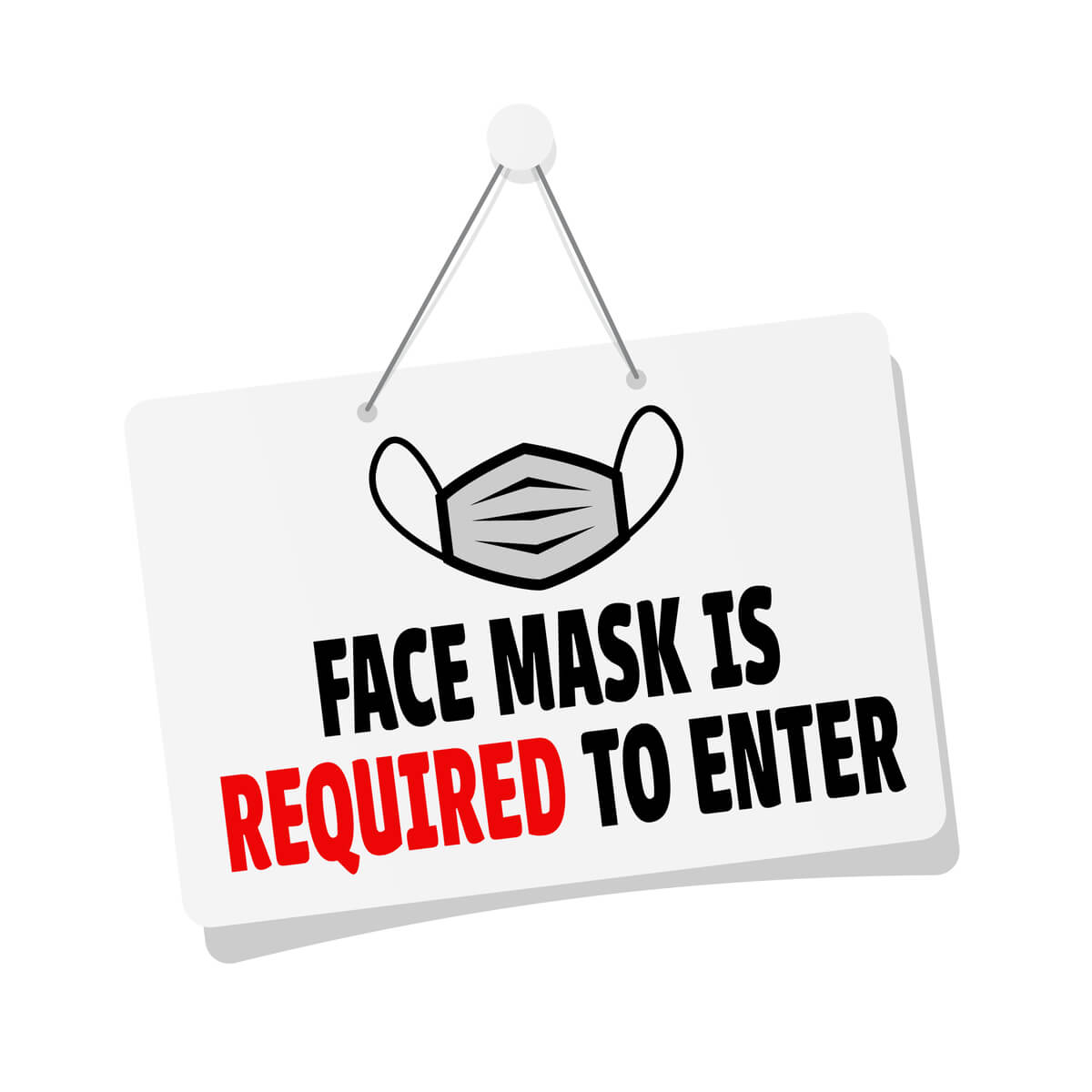In an effort to help curb the spread of COVID-19, protect workers on the job and business patrons, and continue reopening New York, Governor Cuomo signed an Executive Order that permitted businesses to deny entry to any individuals not wearing either a mask or a face covering. Though the order sounds like a sweeping decree that everyone must wear a mask or risk entry refusal, both places of public accommodation as well as all employers must still comply with the Americans with Disabilities Act (ADA) when it comes to individuals physically or medically incapable of complying with mask requirements.
Customer-Related ADA Considerations
Though the Executive Order broadly states anyone not wearing a mask may be denied entry to a business, this runs counter to the CDC’s stated guidance that several groups should be exempt from wearing masks. These include:
- Children under 2 years of age
- Individuals with breathing problems
- Incapacitated persons
- Unconscious persons
- Persons needing assistance to remove a mask or face covering
Though businesses may have discretion as to whether they deny entry to some of these individuals, the linchpin issue is that even during the COVID-19 pandemic businesses must reasonably accommodate customers unable to wear a face covering or mask because of a disability. This means the ADA still applies during COVID-19.
General ADA Requirements During COVID-19
Under the ADA, businesses open to the general public must provide equal access to its services and goods to disabled individuals. In essence, businesses must reasonably modify their procedures and policies so disabled individuals have equal access. This includes customers who cannot wear a mask –those who merely object to wearing one may rightfully be denied entry.
Reasonable Accommodations
What qualifies as a reasonable accommodation will depend on the services provided or goods sold by the business in question. In most cases, there will be ways to tailor their practices or procedures to meet an individual’s needs. These accommodations may include:
- Curbside pickup
- Designated shopping hours
- Allowing entry if the individual can safely wear a full-faced shield rather than a mask
- Online shopping and contactless pickup or delivery; however, any website or app used for ordering must also be accessible to disabled individuals.
Posting signs at businesses entrances can also be helpful in avoiding improper refusal; notifying customers of their ability to request accommodations if they are unable to wear a mask may help prevent ADA violations and preserve a positive relationship with disabled customers.
New York Business Transactions Lawyer
As customers begin returning to businesses, it’s in the best interest of business owners, managers, and employees to keep customers both safe and happy. However, they must still abide by federal, state, and local COVID-19 regulations as well as other laws protecting individuals’ rights. Harmonizing these responsibilities can understandably become confusing; this is why the experienced New York business transactions lawyers at MOWK Law are here to help with the balancing act. We can assist you in finding reasonable accommodations to stay ADA compliant that still work with the policies and practices that have made your business a success. Contact us today with your questions to learn more.

